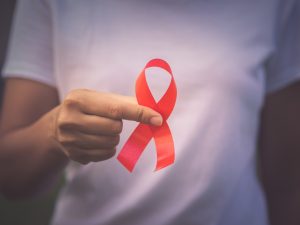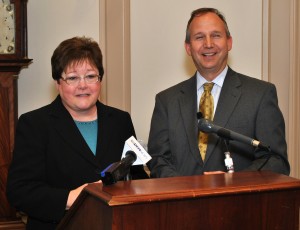DOVER — Knowing your status for human immunodeficiency virus (HIV) gives you powerful information that will help keep you and your partner healthy. Free HIV testing will be offered through the Division of Public Health (DPH) at two Delaware state service centers on Wednesday, June 27, 2018, in observance of National HIV Testing Day. The Centers for Disease Control and Prevention (CDC) recommends that everyone between the ages of 13 and 64 get tested for HIV at least once as part of routine health care.
“Knowing your HIV status is so important, because there are treatment options available,” said DPH Director Dr. Karyl Rattay. “Additionally, in the event that you are HIV positive, you can take precautions to prevent spreading the virus to a sexual partner or spreading the virus to others by exposing them to your blood.”
The free HIV tests through DPH will be available on Wednesday, June 27, at:
Shipley State Service Center, 350 Virginia Ave., Seaford, from 8:00 a.m. to noon and 1:00 p.m. to 3:30 p.m.
Porter State Service Center, 511 W. 8th St., Wilmington, from 10:00 a.m. to 2:30 p.m.
The results of HIV testing are usually available within 30 minutes. Tests are confidential and walk-ins are welcome.
In the United States, HIV is mainly spread by having unprotected sex or sharing syringes and other injection equipment with someone who is infected with HIV. Substance use can contribute to these risks because alcohol and other drugs can lower people’s inhibitions and make them less likely to use condoms.
HIV weakens a person’s immune system by destroying important cells that fight disease and infection. No effective cure exists for HIV, but with proper medical care it can be controlled. Some groups of people are more likely to get HIV than others because of many factors, including their sexual partners, their risk behaviors, and where they live. The only way to know for sure whether you have HIV is to get tested.

“HIV and AIDS remain problems for Delaware,” said Department of Health and Social Services Secretary Dr. Kara Odom Walker, a family physician. “While there has been tremendous amount of improvement in preventing and treating HIV, there is still plenty you can do to stay proactive. Knowing your HIV status is one of the most important things you can do.”
Drs. Rattay and Walker said there are about 3,500 Delawareans living with HIV and an estimated additional 350 people who are infected and don’t know they have the virus.
For more information about testing, contact the Porter State Service Center at 302-777-2860 or the Shipley State Service Center at 302-628-6772.
A person who is deaf, hard-of-hearing, deaf-blind or speech-disabled can call the DPH phone number above by using TTY services. Dial 7-1-1 or 800-232-5460 to type your conversation to a relay operator, who reads your conversation to a hearing person at DPH. The relay operator types the hearing person’s spoken words back to the TTY user. To learn more about TTY availability in Delaware, visit http://delawarerelay.com.
Delaware Health and Social Services is committed to improving the quality of the lives of Delaware’s citizens by promoting health and well-being, fostering self-sufficiency, and protecting vulnerable populations. DPH, a division of DHSS, urges Delawareans to make healthier choices with the 5-2-1 Almost None campaign: eat 5 or more fruits and vegetables each day, have no more than 2 hours of recreational screen time each day (includes TV, computer, gaming), get 1 or more hours of physical activity each day, and drink almost no sugary beverages.


